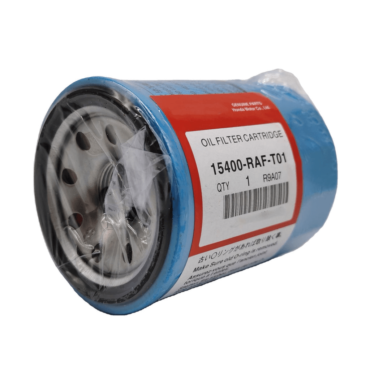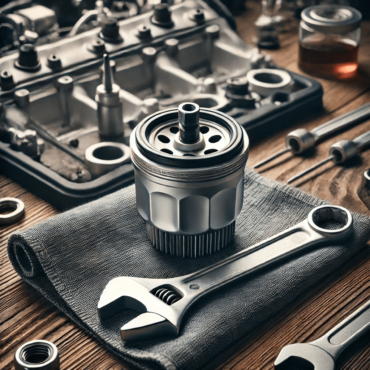Diesel engines are known for their power, durability, and fuel efficiency, making them a popular choice for both personal and commercial vehicles. However, maintaining a diesel engine requires proper care, and one of the most essential components is the diesel oil filter. This filter plays a critical role in keeping the engine clean, efficient, and long-lasting. In this guide, we’ll dive into the importance of diesel oil filters, explore the different types, and provide tips for choosing and maintaining them.
For a range of quality diesel oil filters, check out Filter Point.
Why Diesel Oil Filters Are Essential
Diesel oil filters are specially designed to remove impurities from the engine oil. Unlike gasoline engines, diesel engines operate at higher pressures and are more susceptible to contamination from soot, carbon, and other particles. Over time, these impurities can accumulate and clog essential components, reducing engine efficiency and potentially leading to expensive repairs. By trapping contaminants, a diesel oil filter ensures that only clean oil circulates within the engine, protecting its performance and lifespan.
Without a well-functioning oil filter, the engine could suffer from increased wear and tear, leading to higher maintenance costs and reduced fuel efficiency. Diesel oil filters, therefore, play a pivotal role in engine health, helping to maintain optimal performance and extend the engine’s life.
Types of Diesel Oil Filters
There are various types of diesel oil filters available, each offering unique features and suited to different engine requirements. Knowing the difference between these types can help you choose the right filter for your vehicle.
Full-Flow Oil Filters
Full-flow filters are the most common type found in diesel engines. These filters ensure that all the engine oil passes through the filter before reaching vital engine components. Because full-flow filters handle a high volume of oil, they need to be efficient at capturing large contaminants. However, they may allow smaller particles to pass through, which is why some diesel engines use additional filtration systems.
Bypass Oil Filters
Bypass oil filters work alongside full-flow filters and are designed to filter out smaller contaminants that full-flow filters might miss. Instead of filtering all the oil at once, bypass filters clean a small portion of the oil at a time, trapping finer particles and preventing sludge buildup. They are often used in heavy-duty diesel engines that experience prolonged usage, offering enhanced filtration without compromising oil flow.
Cartridge Oil Filters
Cartridge filters come in a replaceable filter element that fits into a permanent housing. These filters are eco-friendly because only the internal filter element is replaced rather than the entire unit. Cartridge filters provide high filtration efficiency and are often easier to inspect, making them a popular choice for diesel engines.
Spin-On Oil Filters
Spin-on filters are commonly used in various engine types, including diesel engines. These filters consist of a canister that encloses the filter media and can be easily screwed onto the engine. They are highly convenient for quick filter changes and are widely available for most diesel models.
To explore a variety of diesel oil filters, including full-flow and bypass options, visit Filter Point.
Choosing the Right Diesel Oil Filter
Selecting the right diesel oil filter for your vehicle is crucial for optimal performance. Here are key factors to consider when choosing a filter:
Compatibility
The filter you choose should be compatible with your specific diesel engine model. Consult your vehicle’s manual or check with a professional mechanic to ensure that you’re selecting a filter designed for your engine type.
Filtration Efficiency
The filter’s efficiency is measured by its ability to trap contaminants of various sizes. For diesel engines, it’s advisable to choose a filter with high filtration efficiency, as this will remove a greater amount of harmful particles and prolong engine life.
Durability
Since diesel engines are often used in demanding conditions, choose a filter with durable construction that can withstand high pressure and temperature fluctuations. A high-quality filter will not only last longer but also perform consistently in challenging environments.
Easy Installation and Replacement
Some filters are easier to install and replace than others. If you prefer to handle your own vehicle maintenance, look for filters that offer simple installation, such as spin-on models.
Get reliable filters tailored to your diesel engine at Filter Point.
Benefits of Regular Diesel Oil Filter Maintenance
Regular maintenance of your diesel oil filter can have numerous benefits. Here’s why it’s important to replace the oil filter at recommended intervals:
Enhanced Engine Performance
Replacing the oil filter regularly keeps the engine oil clean, which helps the engine operate smoothly. Clean oil reduces friction, leading to improved fuel efficiency and a quieter engine.
Prolonged Engine Life
Contaminants in the oil can lead to premature wear of engine components. By maintaining a clean oil filter, you protect critical engine parts from damage, extending the overall life of the engine.
Reduced Emissions
A clogged or dirty oil filter can lead to higher emissions, as the engine works harder to circulate oil. Regular filter changes contribute to better fuel combustion and lower emissions, benefiting both your vehicle and the environment.
Lower Maintenance Costs
Failing to replace the oil filter can result in costly repairs down the road. Regular maintenance prevents sludge buildup and other issues, reducing the likelihood of expensive engine repairs.
How to Change Your Diesel Oil Filter
Changing a diesel oil filter is a straightforward process that can be done at home with the right tools. Here’s a step-by-step guide to help you through the process:
- Prepare the Vehicle: Park your vehicle on a level surface, and let the engine cool if it has been running.
- Drain the Oil: Place an oil drain pan beneath the oil drain plug and remove the plug to drain the old oil.
- Remove the Old Filter: Use an oil filter wrench to unscrew the old filter. Be careful to avoid spilling oil.
- Install the New Filter: Apply a thin layer of oil to the gasket of the new filter and screw it into place. Be sure not to overtighten.
- Refill the Oil: Replace the drain plug and refill the engine with the recommended oil type.
Regularly changing your diesel oil filter is an essential part of vehicle maintenance. However, if you’re unsure about doing it yourself, a mechanic can perform this service efficiently.
For premium diesel oil filters and other maintenance essentials, check out Filter Point.
Signs Your Diesel Oil Filter Needs Replacement
Knowing when to replace your diesel oil filter can save you from potential engine issues. Here are some signs that indicate it’s time for a new filter:
- Decreased Engine Performance: If you notice sluggish acceleration or reduced fuel efficiency, a clogged oil filter may be the cause.
- Unusual Engine Noises: A dirty filter can lead to increased friction in the engine, causing unusual sounds.
- Increased Exhaust Smoke: A clogged oil filter can result in higher emissions, leading to more visible exhaust smoke.
- Overheating: A restricted oil flow due to a clogged filter can lead to overheating, potentially causing damage to engine components.
By paying attention to these signs, you can address issues promptly, ensuring your diesel engine remains in peak condition.
Conclusion
Diesel oil filters play a vital role in maintaining the cleanliness and efficiency of your engine. By choosing the right filter and adhering to a regular replacement schedule, you can protect your diesel engine from wear and improve its performance. High-quality filters provide superior filtration, which means a cleaner engine, better fuel economy, and fewer emissions. Whether you drive a personal vehicle or manage a fleet, investing in reliable diesel oil filters is essential for long-term engine health.




